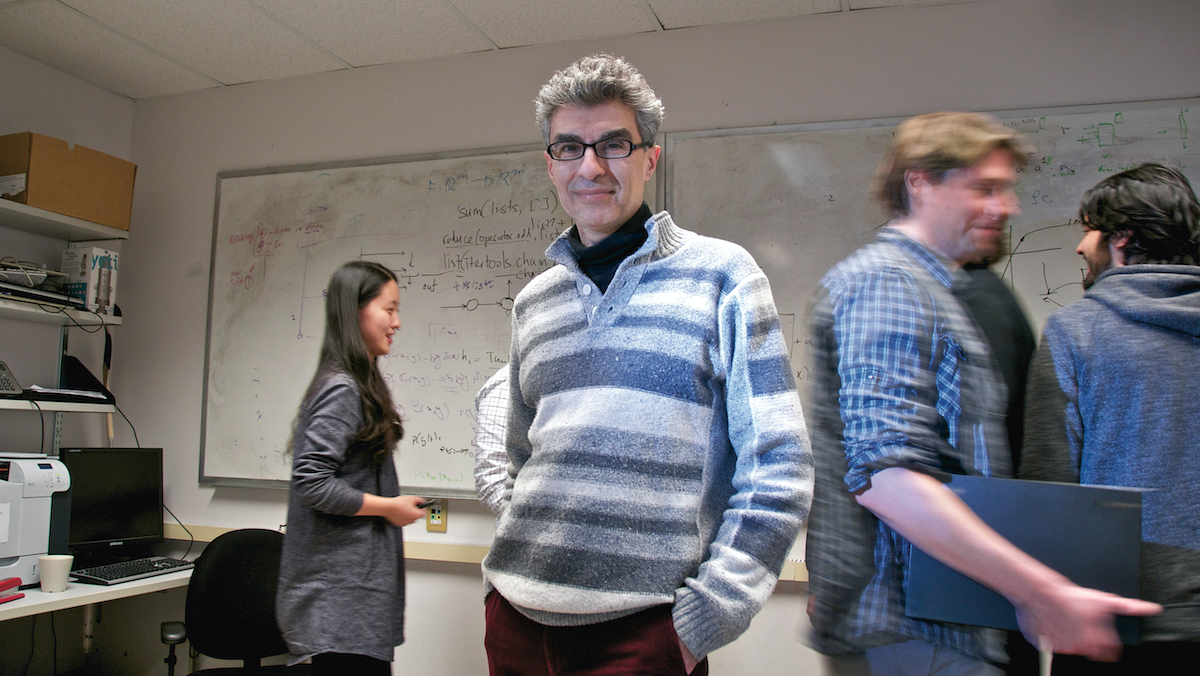Dear friends,
Last week, safe.org asserted that “Mitigating the risk of extinction from AI should be a global priority alongside other societal-scale risks such as pandemics and nuclear war.” This statement was signed by AI scientists who I really respect including Yoshua Bengio and Geoffrey Hinton. It received widespread media coverage.
I’m glad to see others presenting a sensible alternative to the narrative of AI as an extinction risk. Having said that, though, I feel an ethical responsibility to keep an open mind and make sure I really understand the risk — especially given the high regard I have for some who think AI does pose this risk.
To learn more, I’m speaking with a few people who I think might have a thoughtful perspective on how AI creates a risk of human extinction, and I will report back with my findings. In the meantime, I would love to hear your thoughts as well. Please reply to my posts on Twitter or LinkedIn if there’s someone you think I should speak with or if you’d like to share your perspective. Through this, I hope we can have a real conversation about whether AI really poses an extinction risk.
I look forward to continuing the discussion with you, Andrew
News
Bengio, Too, Anxious About AI RisksAnother prominent AI pioneer expressed regret over his life’s work amid rising concerns over the technology’s risks. What’s new: Yoshua Bengio, a professor at the Université de Montréal who laid parts of the foundation for deep learning, followed fellow trailblazer Geoffrey Hinton in airing his anxiety publicly. He told BBC that AI’s potential for misuse left him feeling “lost” and questioning the value of his life’s work.
Behind the news: Bengio is one of the most cited computer scientists in the world. He, Hinton, and Yann LeCun shared the prestigious Turing Award in 2018 for their foundational work in deep learning. His accomplishments include helping to introduce an early attention mechanism for natural language processing and develop the generative adversarial network architecture. In a commentary he wrote for The Batch, he looked forward to neural nets that can reason. Why it matters: The recent pace of progress in AI has startled even researchers who have spent decades improving the technology, and its potential for harm has taken many by surprise. While there is little doubt that AI poses hazards, debate runs hot around which are most pressing and how to address them. (For instance, Yann LeCun, the third winner of the shared Turing Award, has downplayed some of Bengio’s concerns.) Recognizing the most serious problems is the first step toward devising effective solutions. We’re thinking: As AI builders, we have an ethical responsibility to minimize the harms our work might bring, even as we work to maximize the benefits. We wish Yoshua Bengio great fulfillment in the next phase of his stellar career.
Falcon AscendsA team in the United Arab Emirates, a seven-state federation on the Arabian Peninsula, built the latest top-performing open source large language model. What’s new: The UAE’s Falcon edged out Meta’s LLaMA in the Hugging Face Open LLM Leaderboard to take the top spot. It’s available via the Apache 2.0 license, which is free for commercial applications. You can try it here. How it works: Developed by Abu Dhabi’s Technology Innovation Institute (TII), Falcon is a pretrained model based on transformers. A paper is forthcoming.
Behind the news: Open source licenses, particularly those that are free for commercial use, are enabling independent teams to build systems that are competitive with those produced by big tech companies. A recently leaked Google memo went so far as to call open source development a threat to the company’s business. Why it matters: Amid a surge in open source language models, Falcon offers higher performance (on the four benchmarks tracked by Hugging Face) and lower training cost relative to its chief rival, LLaMA. The fact that it was built by a team in Abu Dhabi highlights the fact that AI talent is everywhere and elite skills are spreading to all parts of the globe. We’re thinking: AI development is a global enterprise. It gives us hope that people around the world can come together to meet other common challenges.
A MESSAGE FROM DEEPLEARNING.AIAre you ready to use AI in projects that can have a positive impact on public health, climate change, and disaster management? Pre-enroll now and get 14 days of your subscription for free!
LAION RoarsThe largest dataset for training text-to-image generators was assembled by volunteers for roughly $10,000. Now it’s implicated in fights over whether copyrighted works can be used for training.
Behind the news: Data scraped from the web is at the center of several disputes.
Why it matters: Copyright holders are questioning the ethics of using their materials to build AI models. LAION plays a major role in the controversy. On one hand, it’s a nonprofit effort run by volunteers on a shoestring budget. On the other, the datasets it curates are driving tremendous business value. Stability AI, for instance, seeks a $4 billion valuation.
Optimizing Matrix MultiplicationMatrix multiplication is executed so often in deep learning, video games, and scientific computing that even a slight acceleration can save substantial amounts of processing time. New work finds ways to speed up this crucial operation. What’s new: Alhussein Fawzi and colleagues at DeepMind developed AlphaTensor. This reinforcement learning agent discovers algorithms that multiply matrices faster than those previously developed by humans. Composition and decomposition: Computers need more time to multiply than to add or subtract. Developers often take advantage of algebraic properties — for instance, (a^2 - b^2) = (a+b)(a-b) — to manually find matrix multiplication algorithms that require fewer multiplications. To minimize the number of multiplications systematically, we can take advantage of the fact that a tensor (a high-dimensional matrix) can represent a matrix multiplication algorithm. It’s easy to compose a tensor from three matrices. However, to decompose a tensor (the reverse operation) is not straightforward; the procedure could result in any of thousands of potential sets of matrices. Any valid decomposition of the tensor into three matrices represents a valid algorithm for matrix multiplication. The number of columns equals the number of multiplications required. Key insight: Just as DeepMind’s AlphaZero learned via reinforcement learning to play Go by simulating future game-board states and, based on those states, predicting the likelihood that it would win, a reinforcement learning model can learn to win a game of decomposing tensors by predicting the columns of three matrices. How it works: Given a tensor that represents a matrix multiplication algorithm, AlphaTensor played a game in which it decomposed the tensor into three matrices with as few columns — and thus as few multiplications — as possible. (The values in the predicted columns were limited to {-2,-1,0,1,2} to avoid precision issues that could have occurred with floating-point values.) At each turn, it predicted the entries in one column of each of the three matrices. The game updated the tensor’s state by subtracting the outer product of the predicted columns. It ended when all entries in the tensor equalled 0. AlphaTensor received a negative reward after predicting each set of columns, which encouraged it to decompose the tensor into matrices that had few columns. It received a positive reward for predicting all columns of the three matrices.
Results: AlphaTensor rediscovered known matrix multiplication algorithms for matrices as large as five rows and columns (5x5). Notably, to multiply two 4x4 matrices that contain binary numbers, AlphaTensor discovered an algorithm that requires 47 multiplications, compared to Strassen’s algorithm, which requires 49 and had not been improved upon since its creation in 1969. To multiply 4x5 and 5x5 matrices that contain real numbers, AlphaTensor found an algorithm that requires 76 multiplications; the previous best takes 80. After training AlphaTensor with an additional reward that reduced hardware-specific compute time, the authors found algorithms for an Nvidia V100 GPU that are, on median, 8.5 percent faster than the usual implementation. Optimized for TPUs, AlphaTensor sped up matrix multiplication by 10.3 percent. Why it matters: Neural networks learn from data how to perform a particular task reasonably well (for instance, they may be correct 95 percent of the time). But is reasonably well sufficient for a field such as mathematics, in which results are provably true or false? This paper stands alongside achievements such as a neural theorem finder and neural theorem prover, showing that deep learning can advance even the most exacting fields. We’re thinking: This work shows deep learning’s potential for synergy between humans and machines: People supply an algorithm (such as matrix multiplication) and AI accelerates its runtime.
Work With Andrew Ng
Curriculum Product Manager: DeepLearning.AI seeks a curriculum product manager to create high-quality educational content with our network of AI experts. The ideal candidate has technical AI skills, a strong sense of teamwork, and experience as an educator. Apply here
DevOps Engineer: DeepLearning.AI seeks an engineer with strong computer science fundamentals and a passion for improving learner experiences. The ideal candidate will thrive in an early development stage of a leading educational environment that focuses on AI-related topics. The role is responsible for designing, implementing, and maintaining the infrastructure that supports software development and deployment processes. Apply here
Frontend Engineer: DeepLearning.AI seeks an engineer with strong computer science fundamentals to develop our educational products. The role is responsible for building and delivering high-quality experiences for technical content. You will work alongside a team of talented content creators and outside partners to build the infrastructure for world-renowned AI-driven education. Apply here
Senior Manager, Community Growth: DeepLearning.AI seeks a person to spearhead community and events strategy. The ideal candidate is passionate about driving scale and engagement and has experience producing and executing multimedia content across multiple channels. Apply here
Subscribe and view previous issues here.
Thoughts, suggestions, feedback? Please send to thebatch@deeplearning.ai. Avoid our newsletter ending up in your spam folder by adding our email address to your contacts list.
|
.png?upscale=true&width=1200&upscale=true&name=January%2025%2c%202023%20(6).png)



.png?upscale=true&width=1200&upscale=true&name=The%20Batch%20ads%20and%20exclusive%20banners%20(30).png)

